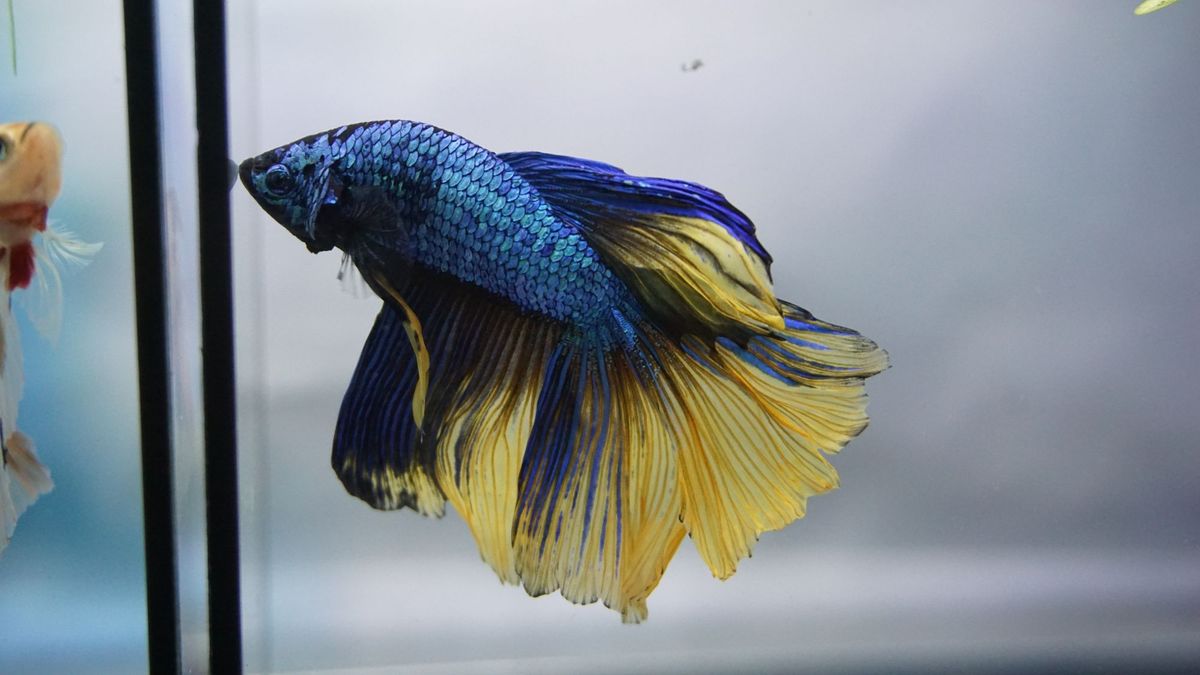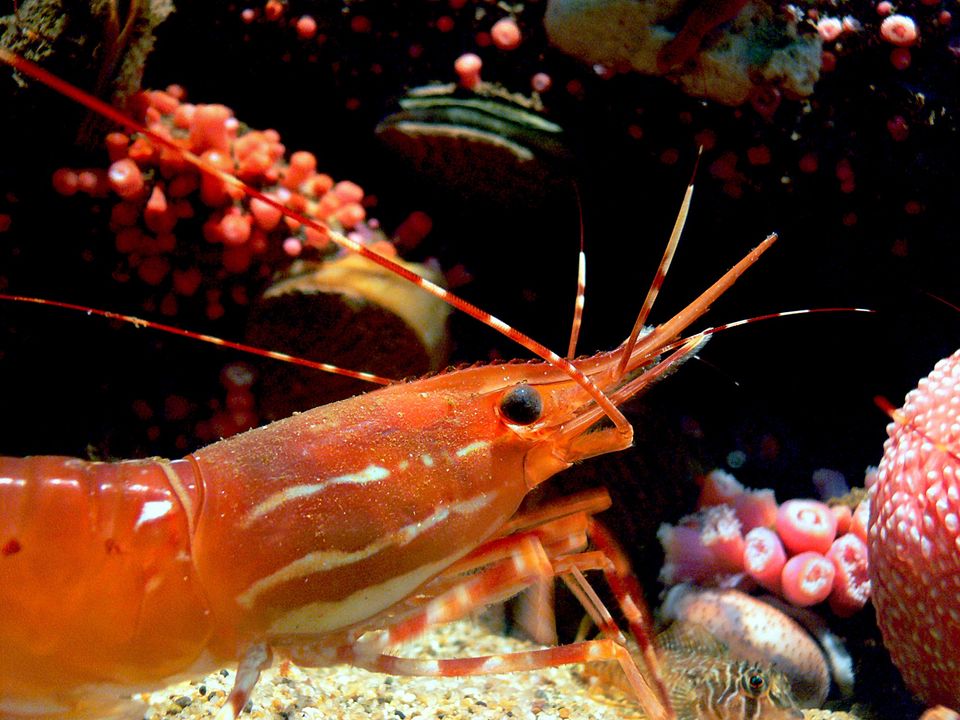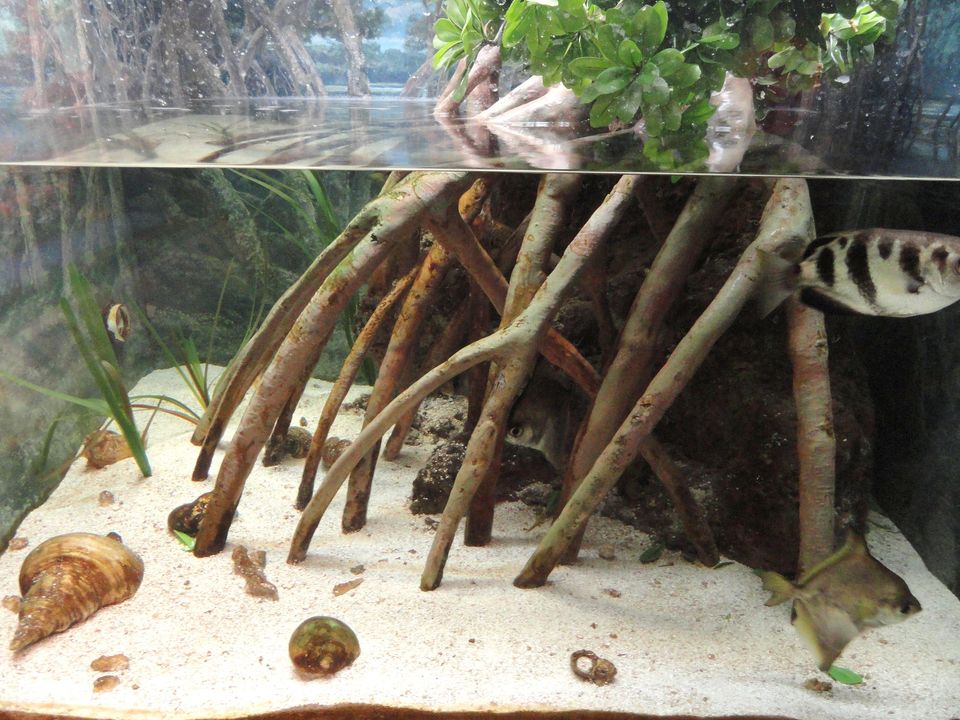Why is my Betta Fish not eating?
There can be a variety of reasons why a betta fish might not be eating. Identifying the correct cause is of the utmost importance. Providing the right solution to the issue can save the betta's life. Find out the possible cause and correct solutions for them.

There can be a variety of reasons why a betta fish might not be eating. Identifying the correct cause is of the utmost importance. Before we dive into the reasons, we have to understand some background about this unique species.
Introduction to betta fish and their dietary habits
Betta fish, also known as Siamese fighting fish, are a popular species of freshwater fish known for their vibrant colors and unique fins. They are native to Southeast Asia and are often kept as pets in aquariums or small bowls. While they are hardy fish, bettas do have specific dietary needs that must be met in order to maintain their health.
Betta fish are typically carnivorous, which means that they thrive on a diet that is primarily made up of protein. In the wild, bettas eat a variety of small insects, worms, and crustaceans. In captivity, a diet of high-quality, protein-rich pellets or frozen foods is recommended for optimum health.
How to identify if your betta fish is not eating
Betta fish are not known to be picky eaters in general, so when they stop eating it can be a sign of a problem. Identifying when your betta fish is not eating is the first step in addressing the issue and getting your fish back to good health. Sometimes you might think the fish is not eating just because it did not get close to the food while you were feeding. Sometimes the fish may eat, but not enough to maintain optimum health. A good indication is needed to confirm it, as it may skip a meal or so for a variety of other reasons. Along with the obvious reasons, Here are some in-depth signs to look out for:
Changes in behavior
One of the most obvious signs that your betta fish is not eating is a change in behavior. If your fish is lethargic, hiding, or not swimming around as much as usual, this may be a sign that something is wrong. In addition, if your fish is not interested in food or seems to be having difficulty swimming, this may also be an indication that your fish is not feeling well. It is easier to identify this when you know your fish very well. If the normal behavior is well known the identification is much easier.
Loss of weight
Another sign that your betta fish is not eating is a loss of weight. Bettas are small fish and have a tendency to lose weight quickly when they are not eating. Measuring the weight of a live fish is not an option here. Therefore the only way to identify is to carefully observing its size and shape. If you notice that your fish's ribs or spine are more pronounced than usual, this may be a sign that your fish is not eating enough.
Discoloration or cloudy eyes
Another sign of a problem is discoloration. Bettas are known for their vibrant colors, so if your fish's color is dull or pale than normal, it is losing its health. Another indication is the cloudy eyes. You can check its eyes closely to see if there is a film over its eyes, this may be a sign that your fish is not eating or is not healthy.
It's important to remember that betta fish are resilient fish and can often recover from a lack of food for short periods of time. However, if your fish is not eating for an extended period, it's important to take action to address the problem.
Common reasons why betta fish may stop eating and their Solutions
When it comes to the reasons "why your betta fish may not eating", there are some common ones to note, mainly due to Stress, Illnesses or diseases, Poor water quality, Wrong types of food, Overfeeding, and possibly due to Old age. Let's dive further into the topic to see each of them in detail.
Stress
Betta fish are highly sensitive to changes in their environment and can easily become stressed as a result. Stress can be caused by a variety of factors, such as a sudden change in water temperature or pH, the presence of other fish, or a lack of hiding places in the tank. When betta fish are stressed, they may stop eating and may also become more prone to illness.
Solution:
If your betta fish is displaying signs of stress, such as a loss of appetite or changes in behavior, it's important to try to identify the cause and take steps to address it. This may involve making changes to the tank setup or separating the fish from other aggressive tankmates. If the problem persists, it's a good idea to consult with a veterinarian who specializes in fish health.
Illness or disease
Betta fish may stop eating if they are sick or have a disease. Common betta fish diseases include fin rot, parasites, and bacterial infections. Fin rot is a bacterial infection that causes the edges of the betta's fins to become frayed and disintegrate. It is often caused by poor water quality or injuries sustained from rough handling or fighting.
Parasites are tiny organisms that can infect betta fish and cause a variety of health problems. Common types of parasites that can infect betta fish include ich, velvet, and anchor worms. Symptoms of parasite infections can include a loss of appetite, changes in behavior, and physical abnormalities, such as discolored fins or patches of missing scales.
Bacterial infections are caused by harmful bacteria that can enter the betta's body through the gills, mouth, or skin. Common types of bacterial infections that can affect betta fish include columnaris and septicemia. Symptoms of bacterial infections can include a loss of appetite, changes in behavior, and physical abnormalities, such as redness or swelling.
Swim bladder disorder: This is a condition that affects the swim bladder, which controls the fish's buoyancy. Fish with this disorder may have difficulty swimming and may have trouble eating.
Solution:
Poor water quality
Betta fish are sensitive to changes in water quality and may stop eating if the water in their tank is dirty or if there are high levels of toxins present. To ensure good water quality, it's important to perform regular water changes and to use a high-quality water conditioner to remove chlorine and other contaminants from tap water.
It's also important to monitor the levels of ammonia, nitrite, and nitrate in the tank, as high levels of these substances can be harmful to betta fish. Ammonia and nitrite are toxic to fish and can be produced as a result of the breakdown of organic matter in the tank. Nitrate is less toxic but can still be harmful to betta fish if the levels are too high.
Solution:
Wrong type of food
Betta fish have specific dietary needs, and feeding them the wrong type of food can cause them to stop eating. Betta fish should be fed a high-quality pellet or flake food that is formulated specifically for bettas. These types of foods are nutritionally balanced and provide the necessary protein, vitamins, and minerals that bettas need to stay healthy.
It's also important to vary your betta's diet with the occasional feeding of frozen or live foods, such as brine shrimp or bloodworms. These types of foods can provide additional nutrients and can help to keep your betta fish interested in their food.
Solution:
Overfeeding
Betta fish should only be fed small amounts of food once or twice a day. Overfeeding can cause them to stop eating and can lead to obesity and other health problems. It's important to only feed your betta fish as much as they can eat in a few minutes and to remove any uneaten food from the tank to prevent it from decomposing and affecting water quality.
Solution:
Old age
Betta fish, like all living organisms, have a lifespan and as they age, their health can decline. As bettas age, they may become less active and have a decreased appetite. This can lead to a decline in their overall health and an increased risk of disease.
Solution:
How to prevent your betta fish from "Not eating" in future
As you now know the outline of the issue, you can now be more vigilant about your betta fish. As they say, prevention is always better than cure. Therefore it is crucial to take the necessary arrangements to prevent the same thing from happening again. So make sure to keep an eye on the following things to keep your betta eating and living healthy.
Provide a healthy and stable environment
One of the most important things you can do to prevent your betta fish from stopping eating in the future is to provide a healthy and stable environment. As mentioned earlier, Bettas are sensitive to changes in water temperature and pH, so it's important to maintain a consistent temperature and pH level in your tank or bowl. Additionally, it's important to keep the tank or bowl clean by performing regular water changes and removing any debris or uneaten food. When changing water or moving your fish, make sure to do it in a way that is less stressful to your fish. Ensure the water temperature and other metrics are matching before you move your fish. No sudden migrations.
Feed a balanced diet, the right amount at the right time
Another important step in prevention is to feed a balanced diet. As previously mentioned, bettas are carnivorous and require a diet that is high in protein. However, it's important to avoid overfeeding and to offer a variety of different types of food to keep your fish interested. Feeding the right type of food, and the optimal amount at the right time is the key here.
Monitor your fish's health and behavior regularly
It's important to monitor your betta fish's health and behavior regularly to catch any potential issues early on. By paying attention to changes in behavior, weight, and appearance, you can quickly identify when your fish is not eating and take action to address the problem. A quick and easy tip is to use photographs. Capture some photos of your betta and keep them as a reference, so you can use that to compare it when needed.
conclusion
In conclusion, it's important to be vigilant about their dietary needs to ensure they thrive in captivity. if your betta fish has stopped eating, it's important to try to determine the cause and take steps to address it. By providing your betta with a stable, consistent environment, maintaining good water quality, feeding a high-quality diet, and avoiding overfeeding, you can help to keep your betta fish happy and healthy. If the problem persists, it's a good idea to consult with a veterinarian who specialized in fish health for further advice and treatment.
References
"How to Take Care of a Betta Fish" by PetMD
"Betta Fish Care - How to Take Care of a Betta" by Bettafish.org
"Betta Fish Diseases - How To Treat A Sick Betta Fish" by Bettafish.org




